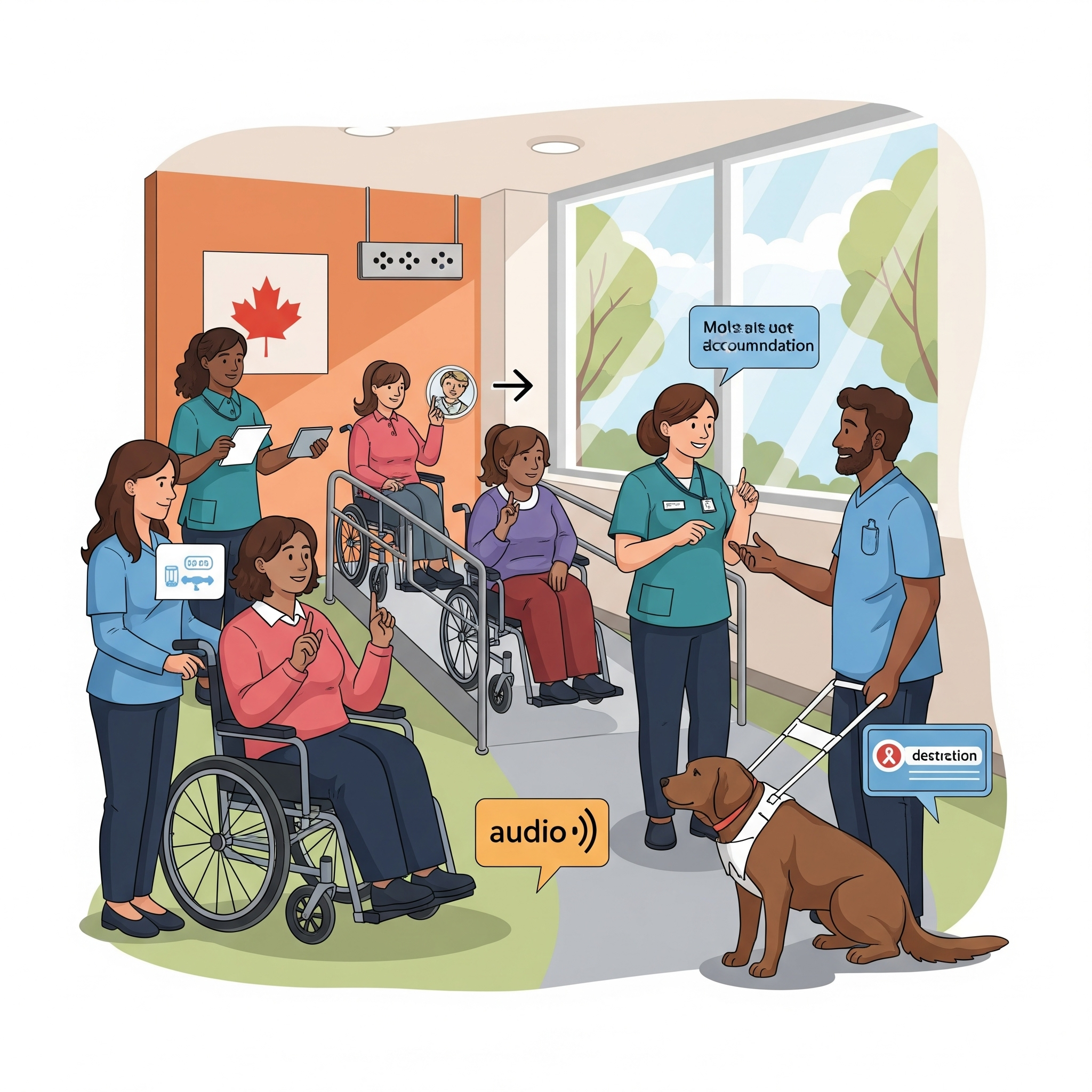Survivors with Disabilities: Navigating Domestic Violence and Accessing Accommodations in Ontario
Survivors with physical, sensory, intellectual, or mental health disabilities may face unique abuse tactics and barriers to safety. This Ontario-based guide outlines your rights, safety options, and accessible services.

♿ Survivors with Disabilities: Navigating Domestic Violence in Ontario
Understanding the Abuse, Your Rights, and Support Options
People with disabilities experience domestic violence at higher rates—but are often overlooked in services and safety planning. Abuse may be physical, emotional, financial, sexual, or take the form of withholding mobility aids, medications, or communication.
This guide connects Ontario-based survivors with disability-inclusive, accessible support.
🚨 What Abuse Can Look Like for Disabled Survivors
-
Controlling access to mobility aids, medication, or health care
-
Isolation from community, caseworkers, or family
-
Threats to institutionalize or remove children
-
Verbal degradation, infantilizing, or gaslighting
-
Using your disability to justify abuse ("You're lucky I take care of you")
-
Physical violence or unwanted touching
-
Withholding interpretation or communication assistance
🧠 Barriers Faced by Survivors with Disabilities
-
Lack of physically accessible shelters or counselling offices
-
Fear of losing personal care support
-
Assumption that “disabled people can’t be abused”
-
Lack of ASL interpreters or sensory accommodations
-
Service animals being denied in crisis spaces
-
Communication and transportation barriers
✅ Your Rights Under Ontario and Canadian Law
-
The Ontario Human Rights Code protects your right to access services without discrimination
-
You do not need to remain in an abusive setting to keep your care or benefits
-
Police and courts are required to provide access accommodations
-
Shelters must make every effort to accommodate assistive devices, interpreters, or accessible rooms
-
You can request support persons, note-taking help, or plain language documents when dealing with legal or healthcare systems
📞 24/7 Crisis and Disability-Aware Support
-
DAWN Canada – dawncanada.net
- Advocacy for disabled women and gender-diverse survivors
-
Assaulted Women’s Helpline – 1-866-863-0511
- Available 24/7, with relay services and interpreter support
-
211 Ontario – Call 2-1-1 and ask for accessible or disability-informed DV services
-
Talk4Healing (for Indigenous women with disabilities) – 1-855-554-4325
🏠 Accessible Shelters and Housing in Ontario
-
Some DV shelters have:
-
Wheelchair-accessible entrances and bathrooms
-
Staff trained to assist with medical and sensory needs
-
Service animal policies
-
In-house or virtual counselling with cognitive or hearing support tools
-
-
If a shelter is not accessible, staff can often arrange hotel stays with required accommodations
-
Transitional housing programs offer longer-term solutions with accessibility features
⚖️ Legal Aid and Accommodation Requests
-
Legal Aid Ontario – 1-800-668-8258
- Offers interpretation, disability accommodations, and legal support for protection orders
-
ARCH Disability Law Centre
- Legal advocacy specifically for people with disabilities in Ontario
-
Victim/Witness Assistance Program (VWAP)
- Can arrange court accommodations such as ASL interpreters, support workers, or quiet rooms
-
You can ask courts for remote testimony, assistive devices, or communication aids
🧘♀️ Healing Support and Peer Networks
-
DAWN Canada – Peer Connect: Virtual support groups for survivors with disabilities
-
March of Dimes Canada – Counselling and independent living supports
-
CNIB (Vision loss) and Silent Voice Canada (Deaf community) offer trauma-informed referrals
-
Local mental health clinics may offer sensory-friendly or modified therapy
-
Survivor groups specifically for neurodivergent or mobility-impaired individuals are growing across Ontario
📌 Summary: Safety and Empowerment for Disabled Survivors
-
✅ You have the right to live free from abuse, no matter your disability
-
✅ Support exists to help with housing, care, legal protection, and healing
-
✅ Abuse is abuse—even if the abuser is also your caregiver or family
-
✅ You can request and receive accessible services, interpreters, or service animal access
-
✅ Help is available—you don’t have to navigate this alone
📍 Ontario Disability-Inclusive DV Resources
-
DAWN Canada – dawncanada.net
-
ARCH Disability Law Centre – archdisabilitylaw.ca
-
Legal Aid Ontario – 1-800-668-8258
-
211 Ontario – Dial 2-1-1 and ask for accessible services
-
Assaulted Women’s Helpline – 1-866-863-0511
